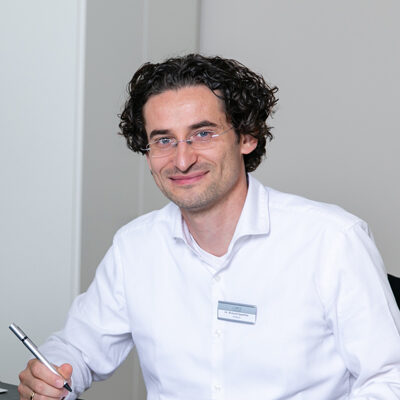Acupuncture for the treatment of mental illness
Acupuncture not only helps with physical complaints, such as headaches or back pain. It is also a proven therapy method in the treatment of mental illnesses. By inserting needles into certain parts of the body, the flow of energy throughout the body is to be stimulated and brought into balance. This body energy is called “Qi”. Our body and mind are only healthy when the Qi can flow freely.
Worth knowing about acupuncture
The healing science of acupuncture has existed for over 2500 years. It originated in traditional Chinese medicine and has been used in our culture since the 1950s. Patients have, in addition to acupuncture, sometimes heard of procedures such as Shiatsu, Qi-Gong, Feng-Shui, acupressure or the use of flower essences. These procedures also target “qi” and are just a few examples from the wealth of Chinese medicine.
Use in mental illness
Nowadays, the treatment of mental and psychosomatic illnesses is increasingly holistic in orientation. That is, the interactions of body and psyche are considered and attempted to bring into harmony. In addition to the classic psychotherapeutic and drug treatment, there are so-called “adjuvant” therapies that support the recovery process. Examples are sport, occupational and physical therapy, art therapy, relaxation techniques, mindfulness and acupuncture.
The first uses of acupuncture in psychiatric-psychotherapeutic care were in the area of addiction. This is also where the NADA protocol originated. The abbreviation NADA stands for National Acupuncture Detoxification Association. This is an ear acupuncture.
Contents of the NADA – Protocol
Fine disposable steel needles are used for acupuncture. They are about 5 cm long and are inserted 2-3 millimeters deep into the pinna. Acupuncture targets five points in the ear, which in Traditional Chinese Medicine represent the following internal organs and their functions:
- Vegetative network (sympathetic nervous system): represents energization
- Gateway to the mind: stands for connection between body and psyche
- Liver: stands for courage, power and dynamism
- Kidneys: stands for vitality and energy
- Lungs: stands for contact and relationship
However, the NADA protocol has another effective factor. Namely, it is not only about acupuncture: the session as a whole should be structured and beneficial and create a calm atmosphere.
The effectiveness of the NADA protocol
Acupuncture was shown to alleviate agitation, anxiety, and substance cravings during withdrawal (German Acupuncture Society, 2019). These positive results led to the use of acupuncture in other areas of psychiatry.
In particular, patients with depression, burnout, trauma, and anxiety disorders can benefit from acupuncture, as these conditions usually involve high levels of inner turmoil and tension.
But how exactly does acupuncture influence well-being? Acupuncture primarily targets physical structures, e.g. internal organs, and has a stimulating, balancing or calming effect here. Therefore it is also called “regulation therapy”. The energy flow in the body is directed back into the right channels.
“[Acupuncture] stimulates the self-healing powers of body and psyche without side effects.” (German Academy of Acupuncture, DAA e.V.)
For whom is the NADA protocol suitable? In many psychiatric-psychotherapeutic facilities, the NADA protocol for acupuncture is applied. Thereby, the procedure is suitable for all patients. There are no known side effects or contraindications. Through the NADA -protocol can be a first access to resources and relaxation.
Typical procedure of an acupuncture session
Acupuncture according to the NADA protocol takes place in a quiet room. The acupuncture session is performed by a professional who has undergone training in the NADA protocol. Once the acupuncture needles are placed in the ear, patients relax in silence for 30-40 minutes. At the end, the needles are removed and disposed of one by one.
Categories: Chronic pain Therapy
